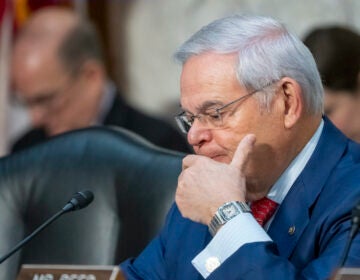New funding for anti-bullying law, but is $1 million enough?
The legislature’s passage last week of a bill to add $1 million to New Jersey’s school anti-bullying law is almost certain to satisfy a state ruling that threatened to nullify the legislation as an unfunded state mandate.
But will it satisfy the districts that brought the challenge in the first place?
“Let’s wait and see how it works out,” said Francis Gavin, the president of the Allamuchy school board in Warren County that brought the initial challenge before the state’s Council on Local Mandates.
The little-known council ruled that the anti-bullying law was an unfunded mandate because while it spells out a series of specific procedures for investigations, staffing and training in every school, no money was attached to it.
Allamuchy said it expended about $30,000 for mandated training and stipends to staff serving as anti-bullying coordinators and specialists.
On Thursday, both the Assembly and Senate agreed to add $1 million from the state’s general fund for districts this year to implement the law.
Other amendments included the creation of a new commission to continue reviewing the law and districts’ needs in implementing it.
Gov. Chris Christie has publicly backed the changes and is all but sure to sign the new bill. The money will go in a fund that the state would distribute through grants districts would apply for.
The changes will likely spare what was one of the nation’s toughest anti-bullying laws from being voided later this month. Not open to appeal, the mandates council’s decision in January was to go into effect in late March with the issue of its written opinion.
The chairman of the council, former Superior Court Judge John Sweeney, said in an interview Friday that it appeared the new law would address the council’s objection, at least for now.
Sweeney said the opinion had yet to be written, but one option would be to speak to both the council’s ruling on the previous law and noting that a new law had added money.
“It would still be our opinion from January, but recognizing a new law had been enacted,” Sweeney said.
But he quickly said that would not prevent districts from bringing a new challenge on any number of grounds, including if the money is not maintained.
Christie and legislators indicated there would be additional money in the fund for future years, but did not guarantee it. The amendments enacted last week included the creation of a new commission to continue reviewing the law and districts’ needs in implementing it.
Still, Sweeney said a challenge on the “sufficiency” of the funds alone might face an uphill battle.
“I won’t say that they can’t come before us, but our jurisdiction is limited on sufficiency unless [the amount] is illusory,” he said. “If they had said it was a dollar, that would be one thing. But it is $1 million.”
The new law does address the need for the state to help provide the training, but the required coordinators and specialists are almost sure to mean additional stipends in every district. A survey of the state’s school board association pegged the costs at $2 million, at the least, for districts responding.
And Gavin, the Allamuchy school board president who argued the case before the state council, said the indirect costs and time required by the law’s extensive procedures for investigating cases add even more to the bill.
“The costs on districts are much more significant than just what was brought before the council,” Gavin said. “Is $1 million spread across 600 districts enough? Where is the line drawn that partial funding equates to funding a mandate? Again, it’s something we have to wait and see.”
In the meantime, Allamuchy already has an application in the state’s fund, which existed under the old version but had no money in it.
“As far as we’re concerned, that’s still an open application,” he said.
NJ Spotlight is an online news service providing insight and information on issues critical to New Jersey, with the aim of informing and engaging the state’s communities and businesses.
WHYY is your source for fact-based, in-depth journalism and information. As a nonprofit organization, we rely on financial support from readers like you. Please give today.




